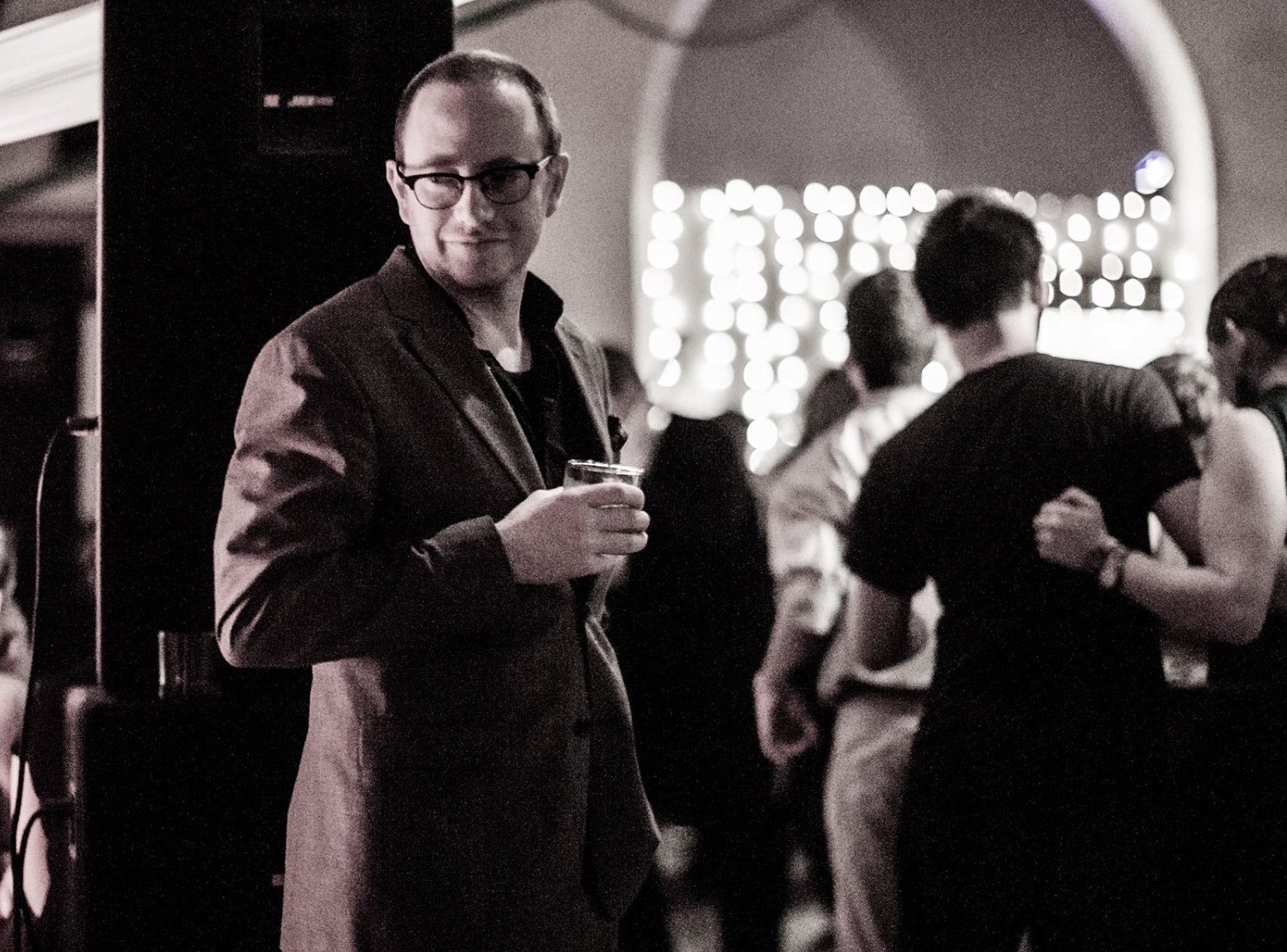Michael Seguin on Class Levels, Auditions and Self-Worth
/Michael Seguin is one of the managers of Mobtown Ballroom in Baltimore and someone we’ve long admired. (He also ain’t a bad dancer: check him out winning the Invitational Jack & Jill at Lindyfest in 2013 with Frida Segerdahl.) He recently shared some of his views on class levels and auditions to the Baltimore lindy hop Facebook group that I think has broad applicability to the dance anywhere. And perhaps to life in general.
As someone who frankly struggled a lot through dance classes in my first few years of dancing, I really appreciate the bigger picture that Michael tries to impart to students about the limited value of classes. I remember the stress of advanced class auditions and the many ways that I would drive myself crazy in the days and hours leading up to the audition.
As Michael writes:
“Life presents us with enough fucked up opportunities to be evaluated, graded, and all the rest. Don’t do that in your hobby. Don’t attach your self worth to that shit.”
Amen to that.
Check out his full post below:
Dear Turkeys,
Last week while Charlie and Sarah [Mobtown teachers] were gone, I did a ton of Lindy 3 auditions, and it was really cool to see how much everyone had improved and how much mental and emotional energy you put into dancing. Honestly, it was a little humbling. I also noticed some of you putting undue, weird pressure on yourselves that I'd like to help dispel. There are some other ways to look at dancing both here and in the broader scene that might be a little more productive. It's also worth mentioning this as some of you get ready to audition at Lindy 500.
The first thing that I want to say is that aspiring to Lindy 3 is not really a great way to measure success in dancing. We designed the current system of classes as a means of delivering specific information at specific times, not really as a reward system or a testament to dance skill. All of this shit is so subjective and so very tied up in the needs of this particular community that putting much weight on class assignments is bound to feel like getting lost in a hall of mirrors.
We've added some necessary layers of bureaucracy and organization at the ballroom over the past couple of years, because we're running a small business with tiny margins, but, honestly, I'd rather close the place and go scoop ice cream than let that bureaucracy creep into everyone's minds and create a scene where people think of improving their dancing as a form of grade-grubbing. The teachers' opinions in Baltimore mean exactly nothing except in so far as we can help you get closer to what you actually want out of this weird activity. We regularly disagree with each other on what should be taught, how to teach it, and who should be in what class. Almost no one ever agrees with me. It's a mad, semi-democratic snake pit in our office.
What this means is that--here or in an event context--if you make whatever level you're aiming for, you should take that with a grain of salt. If you don't, you should take that with a grain of salt, too. The people deciding this at the ballroom are myself (a person afraid of his own cell phone), Sarah (who has found more than one beetle in her hair), and Charlie (a man who still hasn't figured out how to do laundry and perform another task at the same time).
I've taken maybe 2 classes and a couple of workshop weekends in my entire career. I've been doing this for 20 years. I've competed against the best people in the world and won, and I've competed against people much worse than me and lost. I've fallen over in front of 1,000 people. I've never auditioned for anything, mostly because I've been too lazy to get up early enough. I'll be damned if I didn't enjoy the whole gnarly experience, mostly because dancing is supposed to be a grand, crazy lark. And I am certain that my experience dancing would have been considerably less rewarding if I'd been wrapped up in someone else's evaluation of my abilities.
Life presents us with enough fucked up opportunities to be evaluated, graded, and all the rest. Don't do that in your hobby. Don't attach your self worth to that shit. The people we value the most at the ballroom are the one's who are always practicing, always working on something that is theirs--the people who jump in a jam and take a risk and mess up and smile and then jump around. Seriously, if someone who makes a profit off of a product is telling you to value that product less--he really has to mean it.
I look at classes and workshops as a necessary evil. This dance has its roots in a community that used it to express joy and freedom when there was little else available. It's not a studio dance, and we should stay as clear as we can of suburbanized white people yoga culture. It's the wrong environment for it. The point is to connect with another person for a couple minutes, create something together, watch it drift away, and then try the whole thing again. This dance lives at night, on the floor, when you can set aside the internet-addled, lifestyle-branded bullshit characteristic of most of our days. We built this place to be a sanctuary, and we hope you'll let it be that for you, and not another thing to stress about or scramble towards.
It's not that we don't care about you getting better-- we really do. We've just been doing this long enough to know that this is not the kind of dance that you can master without real practice, risk, and experimentation. Classes, though useful, offer very little of that. Most of your improvement is on you, and your "level" won't help you on the social floor, in a jam, or in a contest. Those are the things we'd encourage you to work on.
Take good care of yourselves and each other, never listen to authority with more than half an ear (especially Charlie), and, whenever you can, try to be as much like a movie pirate as possible.
So there you have it. There’s a lot to chew on in there. Do you agree? Let us know in the comments.




